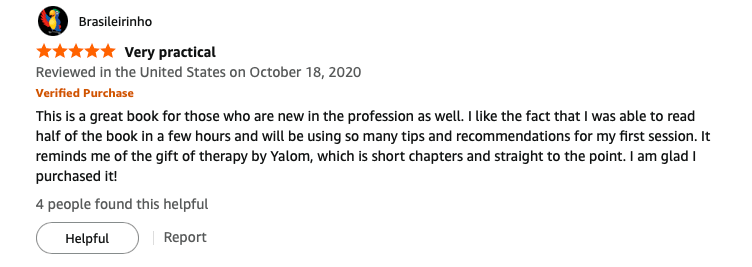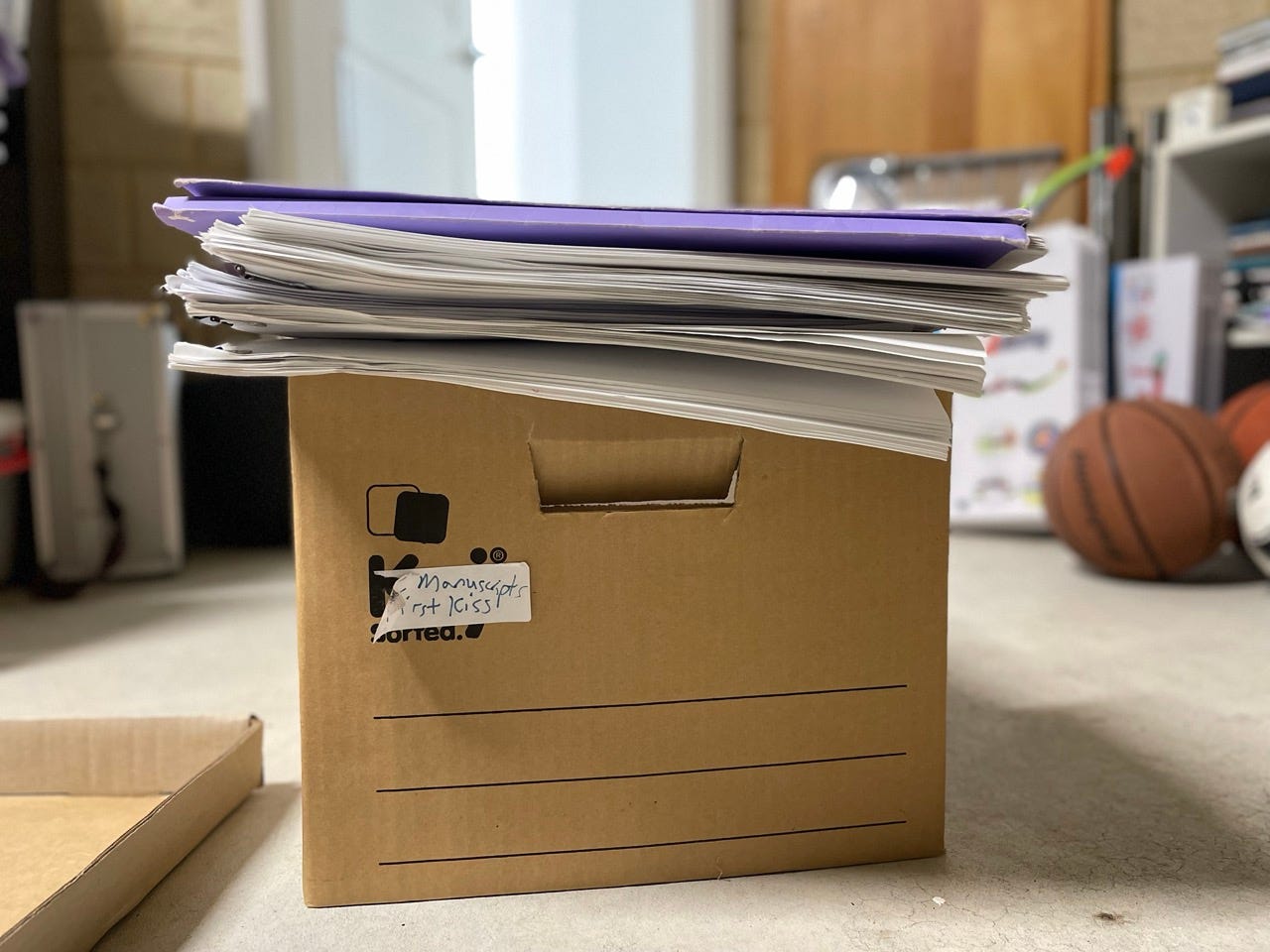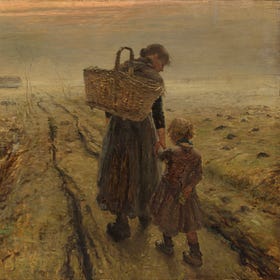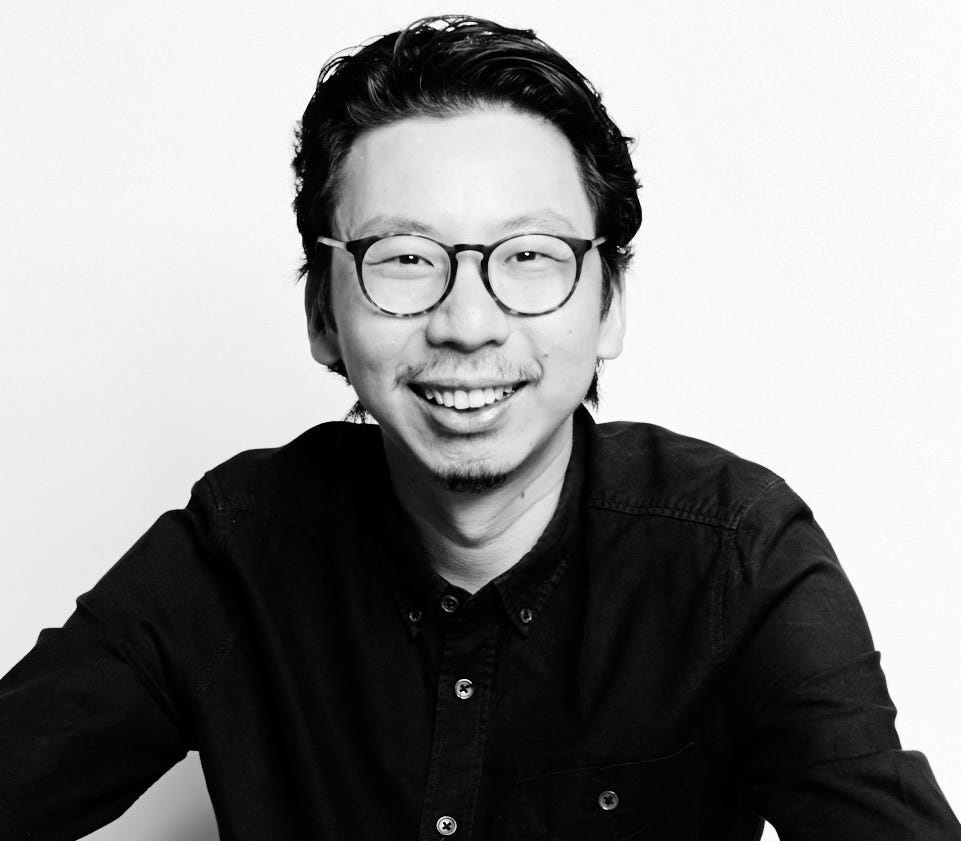The First Session (Part IV. #222) ⭕️
A person is a being and a belonging. Know who they feel belonged to.
Today is the 7th year anniversary of the book, The First Kiss: Undoing the intake model…
Looking back, I was worried that this book wasn’t worth the time to write. I took a long time to not only write it, but to structure it and keep it as concise as possible. I was not only cutting back a lot of fluff from the manuscript, I was also cutting back from paid work. My wife never complained, but I was worried that she was worried, because she was at home with two kids at hand, and I was supposed to bring home the bacon.
Now, I get news that practitioners and clinicians from all over, and universities in counselling and psychology programs are using it.
That means a lot to me1
Here’s one review that stood out:
It’s significant to me was because I intentionally didn’t want the ideas to become another therapy approach. The moment we pin it down with another name, our minds get narrowed too quickly and become rather reductionistic and rigid in our ways of thinking. I much rather we make up our own approach based on sound principles.
A handful of other people picked up on the style of how I was approaching each chapter:
Besides Irvin Yalom’s The Gift of Therapy book, which I highly recommend, I was inspired by Steven Pressfield, Seth Godin and Derek Siver’s approach to writing. Their words were not just crisp and short, it packed a punch as well as having depth.
I was naive about the process of writing more briefly. I thought it should be easier with less words. It actually took a longer time!
With the help of my editor, Shawn Mihalik, I had to learn not to dilute ideas and say things as clearly as possible. The process revealed how unclear I was with my ideas. I had to wrestle with clarifying the gaps in the mind on paper.
If you haven’t read this book, The First Kiss is about rethinking our fundamental assumption that we need to obtain a thorough clinical assessment before the “real” treatment can begin. I want to help therapists not so much as develop a formula for first sessions, but a form, a structure that they can rely on, so that they can touch, move and inspire individuals in the therapy room.
This book fesses up to some of the ugly facts in our field, and how we can subvert them:
While the average number of sessions tends to be within 4-6 sessions, the modal number of sessions—or said in another way, the most common number of sessions attended—is one.
Around 20-30 percent of people do not return after the first visit.
From an intake model, we are taught to formulate cases using a comprehensive framework of the 4Ps: Predisposing, Precipitating, Perpetuating, and Protective factors. I argue that from an Engagement Model, we have to engage in a law of sacrifice (i.e., give up something of lesser value in order to attain something of greater value) and focus on 1P: Priority. Client’s priority, that is.
A psychotherapist is not an archaeologist. In the first session, don’t go digging around for “true but useless” (TBU) information. From an intake model, we fail to recognise that our questions have an effect on our clients, for better or for worse. From an engagement model, we can appreciate and harness the healing effects of good questions. The right questions can put us on a quest.
In the last issue of Frontiers Friday (FF221), I talked about the impact of healing questions.
Related to healing questions, I’d share a chapter that is not available in the Kindle preview. This is Chapter 32 of the book.
Ask “Who?”
A person is a being and a belonging. Know who they feel belonged to.
Paint the constellation of people in the person’s life. Use diagrams like genograms and sociograms to help you and your clients concretely visualise them. It also helps that you have a record of the significant people in your client’s life. Find out how relationships mean to them.
An almost surefire way to get teens talking in the first session is to talk about their friends. Who’s who, who they hang out with, who they fall in love with (Ask who they shared their first kiss with) and who broke their heart. Ask them who annoys them and why. This is a powerful way to energise a conversation.
Ask the names of key individuals. It’s better to refer to “Loretta” than to say, “your wife”. If someone talks about their grandfather, find out what he calls him in their cultural context. When you use names, you add an emotional resonance to the conversation. You might have trouble remembering all the names for your different clients, so write them down.
There are three universal guides for a systemic enquiry:
Life: Figure out who impacted the client’s Life;
Love: Who they fell in Love with/who Loved them (Fred Rogers would say, “Who has loved you into being?”1), and
Loss: who they’ve lost, and their experience of loss, and how it has impacted them.
You may not find out all about the 3Ls out in the first session, but you certainly want to have them in your mind as you join the dots of key relationships in their lives.
§
One time, I asked my client about his growing up years. I asked, “who knew you?”
He said, “It’s strange… my parents were often not home, but my domestic helper was always there. She cooked for me and played with me… She knew me so well. She was a lovely and patient lady.”
“What’s her name? What did you call her?” I asked.
“I called her Auntie Maria…” He said. With a glanced look in his eyes, he added, “It’s so strange how I had not thought about her all these years… yet she meant so much to me.”
Auntie Maria was both a live-in domestic helper and a babysitter to him until he was about eight years old.
All of a sudden, her contract ended and had to return to her home country in Philippines. His parents hadn’t given any pre-emptive warning about her leaving. He remembered the painful goodbyes and how his mother was upset that he had formed such a strong emotional bond with their helper.
“Could we take a moment to remember Auntie Maria, to picture her in your mind’s eye at this moment, to feel the deep gratitude you have for her?”
He welled up. He may not have consciously held Auntie Maria in his adult mind, but the act of re-membering her, pulling her up from the recesses of his unconscious mind, and the love she gave to him, had a profound impact on him.
It softened him.
§
On that note, dear reader, think of the following question:
Who has loved you into being? Who knew you?
Take a moment to hold this person in this present moment.
We give thanks to the people who do the thankless task, the behind-the-scenes, the ones who cooked us a meal everyday, the ones who took the time to listen to us, to play with us. The ones who loved us into being.
Backstory
If you would like to hear about the backstory to this book, regarding my first experience seeking help as a teen, and why this book was dedicated to this person, listen to this podcast interview Clearly Clinical with Elizabeth Irias. (The story starts around 21:30 mins)
Here’s my previous post on First Sessions:
Special Anniversary Offer
If you like a personalised copy of the book, I’m offering 25 Frontiers of Psychotherapist Development (FPD) readers at $23 with free delivery. You’d also get the ebook and audiobook at no cost. I don’t believe you should pay twice or thrice for the same content.
Simple drop us an email at admin@darylchow.com Subject header: The First Kiss. Provide your mailing address, and we will send you a payment link thereafter.
P/S: To my American colleagues, happy independence day.
Notice Board:
2025 National Conference: Optimising Clinical Skills in a Rapidly Changing World: 14-15 Nov 2025, Sydney, Australia.
The organisers have asked for me to share this upcoming conference. I hope you will join us in person or virtually.
I’d be talking about ‘Ways Forward (and Backwards) with Deliberate Practice: A Manifesto for Deep Learning and Improvement of Care,’ as well as a workshop on clinical supervision. I’m looking forward to learning from the co-founder of Motivational Interviewing, Bill Miller.
Daryl Chow Ph.D. is the author of The First Kiss, co-author of Better Results, The Write to Recovery, Creating Impact, and the latest book The Field Guide to Better Results. Plus, the new book, Crossing Between Worlds.
You might be interested in my other Substack, Full Circles: Field Notes on the Inner and Outer Life.
I want to say a big thank you for those who either wrote a review on online bookstores, as well as those who emailed me privately. Sometimes it can feel like I’m writing to a big blackhole. To hear back from readers has been immensely meaningful.


















